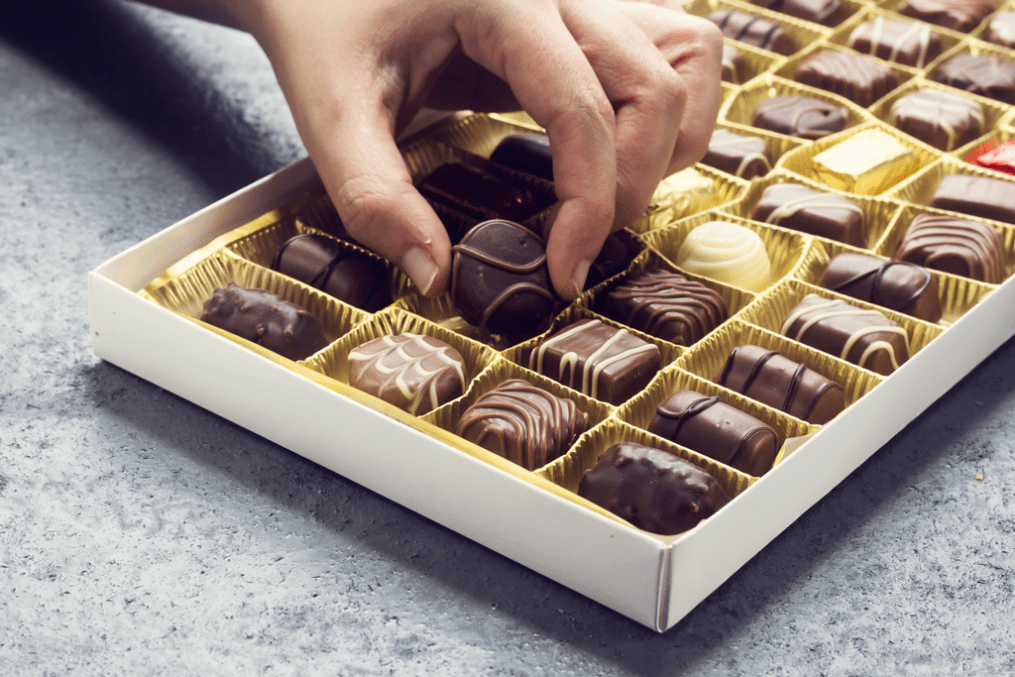What happens when you get cravings?

We all get them. It can be anything from a strong coffee to crunching ice. But are our food cravings trying to tell us something about our health and wellbeing? And how much attention should we pay to them? ‘Cravings are a desire for a specific thing – from exercise and sex to alcohol and cigarettes – and, in the case of food, the craving normally starts with general hunger, which then leads to a focus on what might satisfy you,’ says Jackie Andrade, professor of psychology at the University of Plymouth. It differs from general hunger and thirst. ‘With a craving, you’ll conjure up images about a food, think about the taste or smell and how much you’ll enjoy eating it. When you devote attention to it, it’s distracting you from other things – that is the craving.’ But why are they often so specific?
Why am I so desperate for chocolate come 4pm?
Your energy has evaporated, and if you don’t have chocolate in the next 10 seconds you’re going to collapse. OK, so you know you won’t, but the thought of that delicious mouthful does seem as if it would kick-start your mojo, lift the fog and get you back in the zone. But there are a few reasons why 4pm triggers sugar cravings. ‘If you don’t eat much protein and fat and have lots of carbs for lunch, then about 4pm is when you’ve converted that to energy and need more,’ says Professor Andrade. Switch to a lunch that includes nuts (almonds are great), eggs, dairy or oats. Another possibility is your set-time craving is just part of your routine: if you always have a cup of tea at 3pm, and you notice your mug is empty around that time, then focusing on this habit is the next step. ‘Change the narrative,’ says Professor Andrade. ‘Step outside and call a friend for five minutes, work in a different spot or arrange a meeting for that time to help you divert the habit.’
Lastly, consider that you’re tired and bored – not uncommon at the end of a working day. ‘You have things to do, but you’re devoting your energy to the craving, making the tasks at hand more onerous,’ says Professor Andrade. ‘Distraction from the craving is better than giving in – especially if giving in causes problems like putting on weight.’
How come some people fancy sweet, others savoury?
Surprisingly, food preferences often have nothing to do with our bodies and everything to do with our background. ‘The studies I have looked at indicate that preferences can be cultural,’ says Professor Andrade. ‘In Japan, rice is one of the most commonly craved foods.’ But there can be complex reasons, too. ‘It can also be partly habit, partly preference and partly what you use to boost your mood so you associate it with rewards,’ says Professor Andrade. Which brings us to comfort eating. ‘When you’re under pressure or anxious and you’re craving food, try to do something fun to lift your spirits, like a brisk 10-minute walk,’ she adds.
If I want cheese, do I need more calcium?
Other variants on this theme include that craving crisps means you have a sodium deficiency, and that urge for chocolate means you’re low on magnesium. But is it true? There is evidence that crunching on ice (pagophagia) may be linked to iron deficiency, but that seems to be it – after all, if nutrients are what we crave, wouldn’t we all be munching raw broccoli? ‘Most of the time you’re craving something because it’s nice,’ says Professor Andrade.
Why do I think I need sugar when I’m in a mood?
‘Generally, tiredness or negative mood can be triggers for cravings and especially for things that make you feel more alert, like coffee, chocolate and alcohol,’ says Professor Andrade. Try to find other things that make you feel alert to stop sugar cravings – like going for a run or splashing water on your face. ‘When you’re tired or feel down, you have less energy to “feed” the craving, so a solution lies in combatting the discomfort,’ explains Professor Andrade. That means taking on a positive frame of mind – reflecting on an exciting event you have coming up, for instance.
Is my craving actually an addiction?
There are things we consume that are linked to addiction – smoking, alcohol and even cheese. But the main difference between an addiction and a craving is that an addiction impacts the quality of your life. ‘Sometimes, we act on urges and they don’t become a problem, but if you can’t function until your craving has been satiated then it can be an issue,’ says Professor Andrade. Signs of addiction also include doing something more and more to get the same rewards and not being able to stop. On the other hand, cravings tend not to last more than 10 minutes. ‘You should be able to “surf the urge”, which means distracting yourself until it passes,’ says Professor Andrade.
Do remember that cravings can be a good thing – prompting us to take note of something we need; for example, if you’re busy and have forgotten to eat. ‘We want to harness cravings and use them to achieve positive things,’ she adds. Things like longing for exercise, or fresh veg. ‘We know cognitive effort is part of a craving, and we want to train people to focus on their benefits.’ If you’re hankering after some sugar to see you through that 4pm slump, think about the health benefits of saying no. If it’s exercise you crave (or want to learn to crave), think the same… And say yes. ‘If you have a well-practised image of how better behaviour will benefit you, switch your thinking to that,’ adds Professor Andrade.






